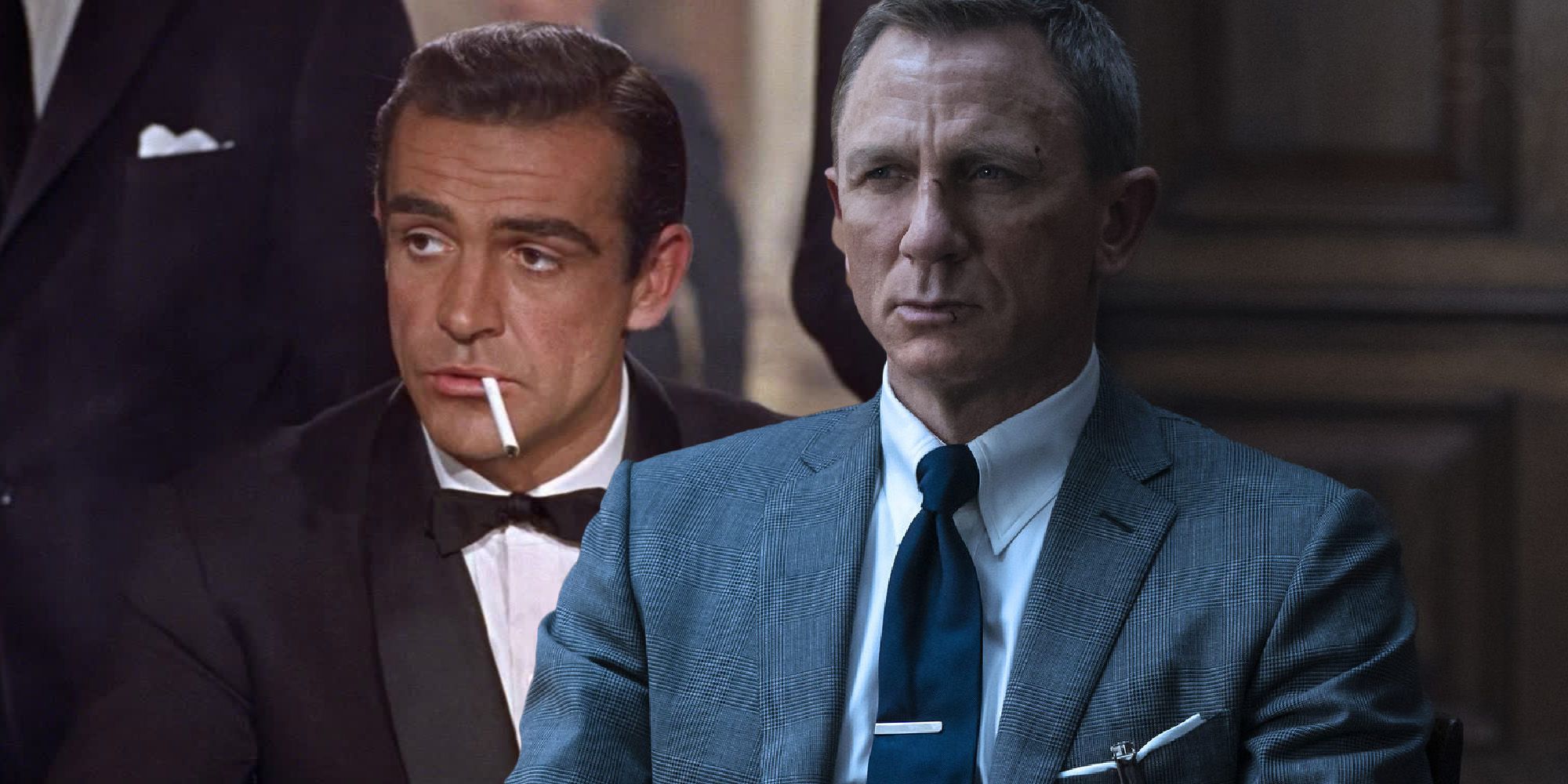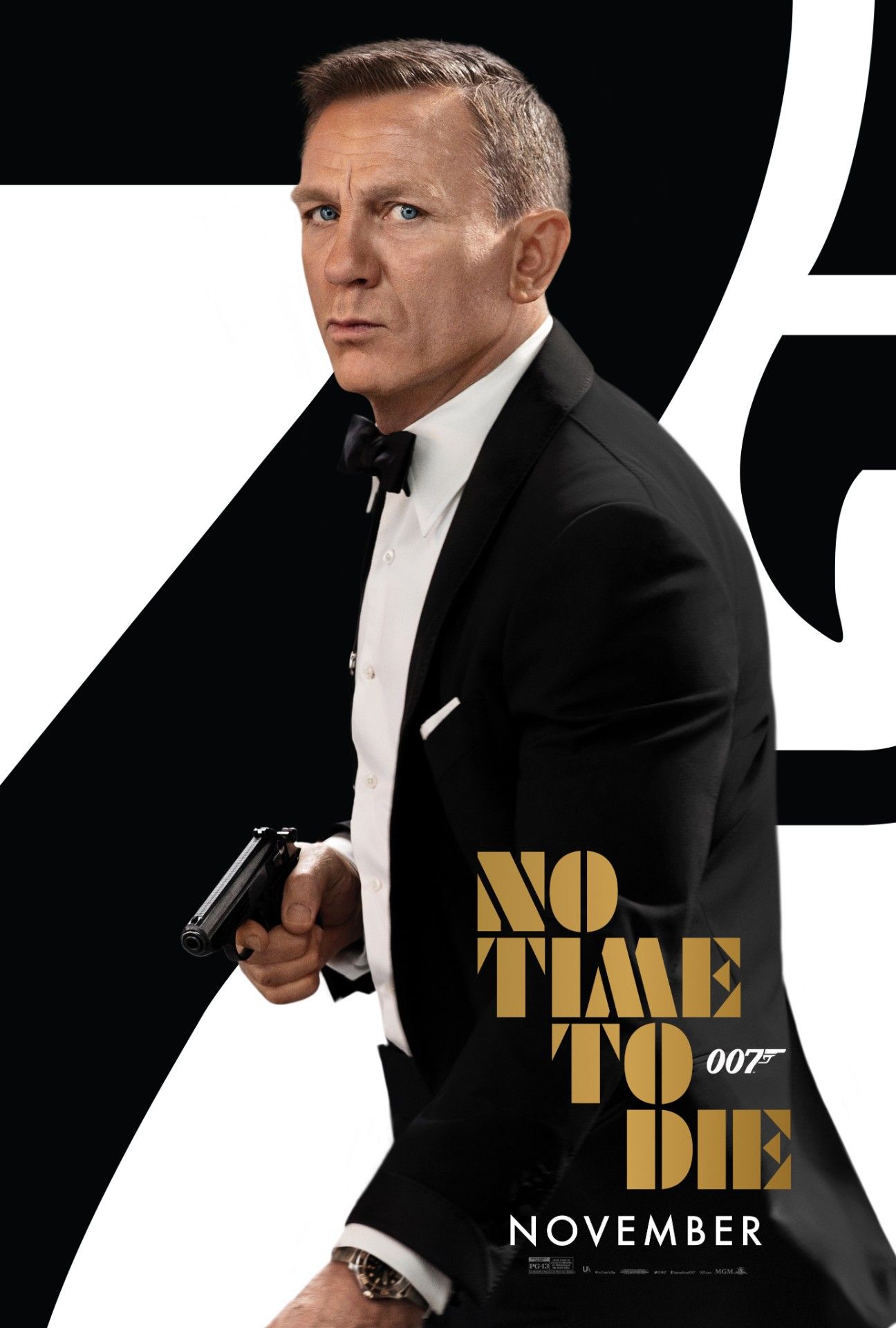James Bond 26 could ditch the modern day and head to the 1960s to truly draw a line under the Daniel Craig era. Although the current pandemic continues to delay the current 007's final mission, No Time To Die will (eventually) bring the modern incarnation of James Bond to his dramatic conclusion. Unlike previous James Bond actors, Daniel Craig's five movies have told a cohesive story, charting the rise of a rookie agent earning his double-0 status in Casino Royale to an aging retiree enduring jokes from his successor in No Time To Die. Story arcs such as the Madeleine Swann romance and the overarching influence of SPECTRE have also carried over through multiple films.
Because Daniel Craig's James Bond tenure has sat proudly apart from the rest of the franchise, No Time To Die's sequel will require a more drastic reset. In years gone by, a new Bond actor would slot into existing continuity without explanation, but that approach no longer works in 2020. In addition to a new lead actor, Bond 26 will need an entirely new crop of support characters, unique story arcs, and a fresh tone in order to differentiate from the inimitable Daniel Craig films. A wide variety of ways to hit "reset" have been suggested, but perhaps the most thrilling is to take the next 007 actor back to the 1960s.
Ever since the James Bond movie franchise began with 1962's Dr. No, each installment has been set in a more or less contemporary setting. Each incarnation of the iconic spy was also a product of their time, from the more light-hearted adventures of Roger Moore in the 1970s and 1980s to the Bourne-esque realism of 2000s Daniel Craig. But while 007 has evolved throughout the decades, the character is intrinsically a product of the 1960s - the era of Ian Fleming's books and the movie blueprint laid out by Sean Connery. Every reimagining of James Bond since has been a variation on that same 1960s template.
After No Time To Die, Eon are widely expected to cast a new James Bond (take your pick from Tom Hardy, Idris Elba or Henry Cavill) and begin a new series of films set in the 2020s, but would that approach risks rehashing the tone and feel of the Daniel Craig era? The best way to truly move on from Bond's recent multi-film arc would be to place the next film in the 1960s. Spy thrillers set in an urban, contemporary setting pass through theaters faster than James goes through sexual partners (not in 2020, granted), but there's a huge gap in the market where period spy movies are concerned. As a native of the swinging sixties, Bond is ideally placed to revisit the past, delivering a fresh take on the franchise, a fresh take on the spy genre, and a transition from Daniel Craig's distinctly modern run of James Bond movies into proper, old-fashioned Cold War espionage.
As well as resetting the James Bond franchise, a historic 1960s story would satisfy the long-standing calls for 007 to return to his roots. Fans of all generations talk of Sean Connery with a wistful eye, still holding the original Bond era as the greatest. A return to the 1960s would acknowledge the inescapable undercurrent of nostalgia haunting the James Bond franchise, but since no 007 movie has ever strayed from its contemporary setting, a 2020s actor playing 1960s Bond would break new ground - a fine balance between retro and progressive. Sequels could then follow Bond through the decades, like X-Men: First Class but the only bald-headed men in wheelchairs are criminal masterminds. It goes without saying that the rampant sexism and outdated attitudes of the time would need to be handled without whitewashing reality, but where most long-running franchises are constrained to a modern day setting, James Bond has the freedom to jump from era to era, and Daniel Craig's successor should take full advantage.



